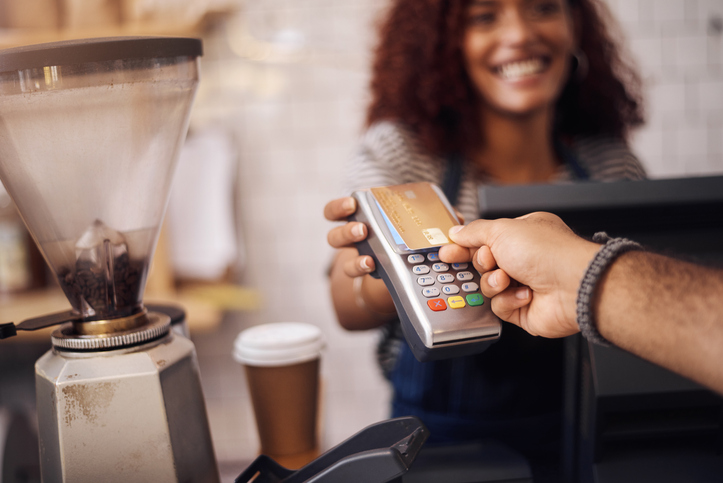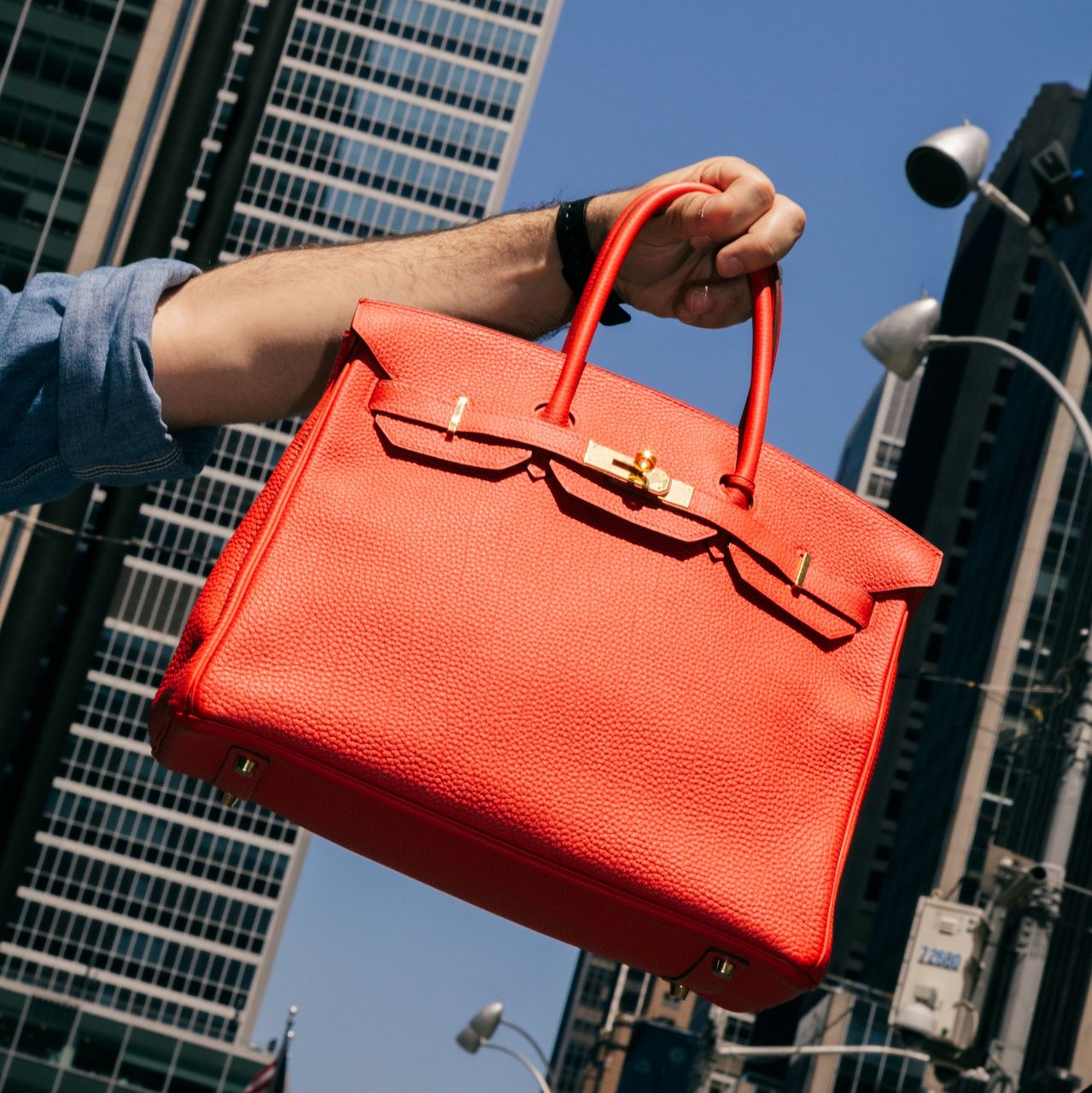How Credit Cards Affect Our Brains
Buying with plastic doesn’t just eliminate a barrier to buying. It actively encourages purchases.
It’s been known for decades that credit cards encourage spending. But why that happens still isn’t entirely clear. New research offers some fresh insight into the causes—and how consumers might be manipulated in an increasingly cashless society.
Research on credit-card spending has tended toward the explanation that delaying payment removes a barrier to purchases in shoppers’ minds. A study published in February in Scientific Reports found evidence of another kind of trigger. Differences it found in brain activity between shoppers planning to use a credit card and those planning to buy with cash indicate that buying on credit doesn’t just ease shoppers’ inhibitions, it actively encourages purchases, the researchers say.
The upshot: When people are shopping with credit cards and see a product they like, the neural network in the brain that produces a sensation of reward perks up, which seems to create a craving to spend, says Sachin Banker, assistant professor at the University of Utah, who worked on the study as a Ph.D. student at the MIT Sloan School of Management.
“You’re basically feeling more reward when you shop with credit cards,” he says. “We don’t see that with cash. It was actually a very stark difference.”
Researchers used a form of magnetic resonance imaging to measure the brain activity of the study subjects as they participated in a shopping exercise. Each participant was shown a total of 84 everyday products over the course of three sessions and was asked whether they would buy each product at the stated price. Half the products were offered for purchase by credit card and half for purchase with cash. None of the products cost more than $50.
The differences in the shoppers’ brain activity support the hypothesis that after repeated credit-card purchases over time the brain learns to anticipate the rewards of credit-card shopping, according to the report. And that suggests that consumers could be conditioned to spend through the use of various sensory rewards in new payment systems, Dr. Banker says. For instance, with digital payments the use of particular sounds or vibrations on your smartphone when you make certain purchases but not others could, over time, teach your brain to anticipate rewards for buying specific products while you’re shopping.
Dr. Banker adds that further research could be done to see if the study’s theories hold true at higher prices. It also could study consumers who tend to overuse or misuse credit cards, to understand further why they act as they do. This study focused on people who mostly paid on time and used credit cards appropriately. Understanding brain patterns for other types of consumers could help lead to solutions that attempt to pre-empt harmful spending behaviour, Dr. Banker says.
Reprinted by permission of The Wall Street Journal, Copyright 2021 Dow Jones & Company. Inc. All Rights Reserved Worldwide. Original date of publication: May 1, 2021
 Copyright 2020, Dow Jones & Company, Inc. All Rights Reserved Worldwide. LEARN MORE
Copyright 2020, Dow Jones & Company, Inc. All Rights Reserved Worldwide. LEARN MORE
This stylish family home combines a classic palette and finishes with a flexible floorplan
Just 55 minutes from Sydney, make this your creative getaway located in the majestic Hawkesbury region.
Continued stagflation and cost of living pressures are causing couples to think twice about starting a family, new data has revealed, with long term impacts expected
Australia is in the midst of a ‘baby recession’ with preliminary estimates showing the number of births in 2023 fell by more than four percent to the lowest level since 2006, according to KPMG. The consultancy firm says this reflects the impact of cost-of-living pressures on the feasibility of younger Australians starting a family.
KPMG estimates that 289,100 babies were born in 2023. This compares to 300,684 babies in 2022 and 309,996 in 2021, according to the Australian Bureau of Statistics (ABS). KPMG urban economist Terry Rawnsley said weak economic growth often leads to a reduced number of births. In 2023, ABS data shows gross domestic product (GDP) fell to 1.5 percent. Despite the population growing by 2.5 percent in 2023, GDP on a per capita basis went into negative territory, down one percent over the 12 months.
“Birth rates provide insight into long-term population growth as well as the current confidence of Australian families,” said Mr Rawnsley. “We haven’t seen such a sharp drop in births in Australia since the period of economic stagflation in the 1970s, which coincided with the initial widespread adoption of the contraceptive pill.”
Mr Rawnsley said many Australian couples delayed starting a family while the pandemic played out in 2020. The number of births fell from 305,832 in 2019 to 294,369 in 2020. Then in 2021, strong employment and vast amounts of stimulus money, along with high household savings due to lockdowns, gave couples better financial means to have a baby. This led to a rebound in births.
However, the re-opening of the global economy in 2022 led to soaring inflation. By the start of 2023, the Australian consumer price index (CPI) had risen to its highest level since 1990 at 7.8 percent per annum. By that stage, the Reserve Bank had already commenced an aggressive rate-hiking strategy to fight inflation and had raised the cash rate every month between May and December 2022.
Five more rate hikes during 2023 put further pressure on couples with mortgages and put the brakes on family formation. “This combination of the pandemic and rapid economic changes explains the spike and subsequent sharp decline in birth rates we have observed over the past four years,” Mr Rawnsley said.
The impact of high costs of living on couples’ decision to have a baby is highlighted in births data for the capital cities. KPMG estimates there were 60,860 births in Sydney in 2023, down 8.6 percent from 2019. There were 56,270 births in Melbourne, down 7.3 percent. In Perth, there were 25,020 births, down 6 percent, while in Brisbane there were 30,250 births, down 4.3 percent. Canberra was the only capital city where there was no fall in the number of births in 2023 compared to 2019.
“CPI growth in Canberra has been slightly subdued compared to that in other major cities, and the economic outlook has remained strong,” Mr Rawnsley said. “This means families have not been hurting as much as those in other capital cities, and in turn, we’ve seen a stabilisation of births in the ACT.”
This stylish family home combines a classic palette and finishes with a flexible floorplan
Just 55 minutes from Sydney, make this your creative getaway located in the majestic Hawkesbury region.






















